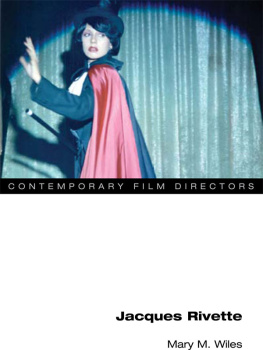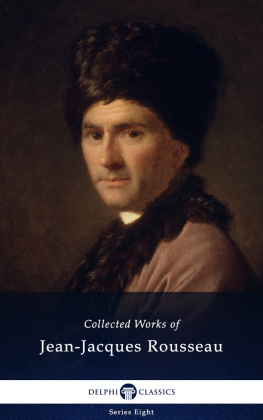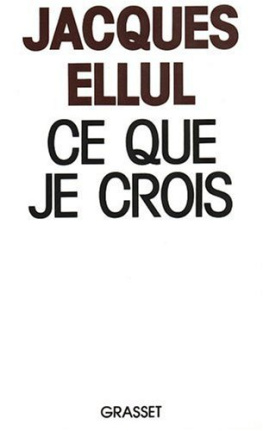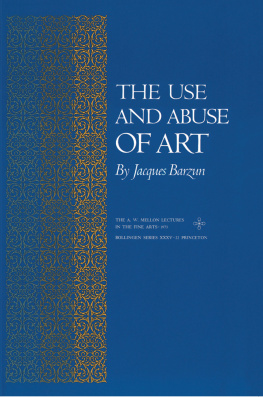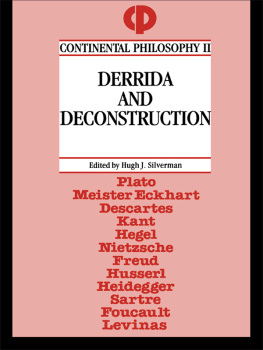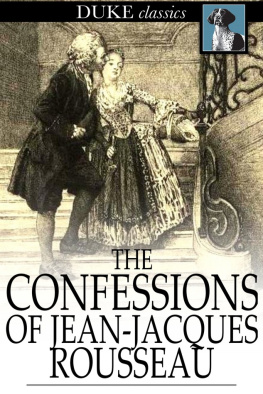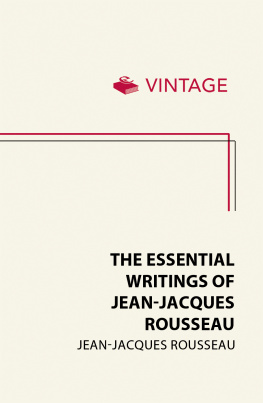Rivette Jacques - Jacques Rivette
Here you can read online Rivette Jacques - Jacques Rivette full text of the book (entire story) in english for free. Download pdf and epub, get meaning, cover and reviews about this ebook. City: Urbana Ill, year: 2012, publisher: University of Illinois Press, genre: Detective and thriller. Description of the work, (preface) as well as reviews are available. Best literature library LitArk.com created for fans of good reading and offers a wide selection of genres:
Romance novel
Science fiction
Adventure
Detective
Science
History
Home and family
Prose
Art
Politics
Computer
Non-fiction
Religion
Business
Children
Humor
Choose a favorite category and find really read worthwhile books. Enjoy immersion in the world of imagination, feel the emotions of the characters or learn something new for yourself, make an fascinating discovery.
- Book:Jacques Rivette
- Author:
- Publisher:University of Illinois Press
- Genre:
- Year:2012
- City:Urbana Ill
- Rating:4 / 5
- Favourites:Add to favourites
- Your mark:
- 80
- 1
- 2
- 3
- 4
- 5
Jacques Rivette: summary, description and annotation
We offer to read an annotation, description, summary or preface (depends on what the author of the book "Jacques Rivette" wrote himself). If you haven't found the necessary information about the book — write in the comments, we will try to find it.
Jacques Rivette — read online for free the complete book (whole text) full work
Below is the text of the book, divided by pages. System saving the place of the last page read, allows you to conveniently read the book "Jacques Rivette" online for free, without having to search again every time where you left off. Put a bookmark, and you can go to the page where you finished reading at any time.
Font size:
Interval:
Bookmark:

Jacques Rivette
Edited by James Naremore
The Contemporary Film Directors series provides concise, well-written introductions to directors from around the world and from every level of the film industry. Its chief aims are to broaden our awareness of important artists, to give serious critical attention to their work, and to illustrate the variety and vitality of contemporary cinema. Contributors to the series include an array of internationally respected critics and academics. Each volume contains an incisive critical commentary, an informative interview with the director, and a detailed filmography.
A list of books in the series appears at the end of this book.

Jacques Rivette
Mary M. Wiles
UNIVERSITY OF ILLINOIS PRESS
URBANA, CHICAGO, AND SPRINGFIELD
In memory of my father,
Charles Preston Wiles
Frontispiece: Jacques Rivette
Photographer Moune Jamet. Courtesy of Collection Cinmathque Franaise.
2012 by Mary M. Wiles
All rights reserved
Manufactured in the United States of America
1 2 3 4 5 C P 5 4 3 2 1
 This book is printed on acid-free paper.
This book is printed on acid-free paper.
Library of Congress Cataloging-in-Publication Data
Wiles, Mary M.
Jacques Rivette / Mary M. Wiles.
p. cm. (Contemporary film directors)
Includes bibliographical references and index.
Includes filmography.
ISBN 978-0-252-07834-7
1. Rivette, Jacques, 1928 Criticism and interpretation.
I. Title.
PN1998.3.R584W55 2012
791.4302'33092dc23 2011026050
Contents
Preface and Acknowledgments
Cinema spent its earlier years distinguishing itself from theater: Jacques Rivettes cinema paradoxically achieves renewal precisely through reference to different forms of theatricality. Academic discussions in the past have consistently situated Rivette on the periphery of the French New Wave movement, as his films have been perceived to be at variance with those of his contemporaries. Film critics have measured his work solely against the zeitgeist of the New Wave, which vaunted spontaneity and freedom from theatrical convention. More recently, studies published in France and Britain, most notably Hlne Frappats seminal work, Jacques Rivette, secret compris (Jacques Rivette, Secrets Understood/Included; 2001) and Douglas Morrey and Alison Smiths excellent monograph, Jacques Rivette (2009), have argued for Rivettes centrality, both as a leading figure of the postwar French avant-garde and as a filmmaker whose work anticipated the postmodernist concern with process, participation, and the performative. In the discussion that follows, I move backstage to observe Rivettes cinema more closely from the perspective of the theater; each section focuses on a different dimension of theatricality in his films.
The following commentary provides a loosely chronological overview of Rivettes films from the New Wave to the present day. In the first section, I examine the evolution of Rivettes early career and his work on short films that already reflect his interest in the connection between theater and cinema. I then move on to analyses of Rivettes feature films. In the second section, I show how Rivettes first feature film, a classic of the New Wave, draws on existentialist theater to address questions of personal culpability and conspiracy. The third section traces the evolution of the tableau as a dimension of theatricality in film adaptations. In the fourth section, I look at how Rivette engages with realism, reflexivity, and European experimental theater in his films from the 1960s and early 1970s. In the fifth section, I show how direct sound and music construct a theatrical dimension in films from the mid-1970s and early 1980s. The sixth section looks at how varied modes of theatricality contribute to the reinvention of film genres, from the 1990s to the commencement of the new millennium. In the seventh section, I trace the evolution of an occult theatricality across three decades. The final section examines Rivettes return to the tableau in his most recent Balzac adaptation, and also his subsequent departure for the theatrical arena of the circus.
In this project that has concentrated on those feature films that foreground theatricality, I have also attempted to show how Rivettes enduring interest in the relation between cinema and theater continues to evolve over the years, expanding to encompass the relation between cinema and various arts, particularly painting, literature, music, and dance. Painting that forms the subject matter of La belle noiseuse (1991), an adaptation of Honor de Balzacs nineteenth-century novella, is thus approached as an additional pictorial dimension of the theatricality that defines Rivettes earlier adaptation of Denis Diderots La religieuse. Rivettes work with film adaptation has continued to provide him with the means to explore the relation between literary, pictorial, and theatrical representations. Music that becomes part of the operatic conception of Scnes de la vie parallle (Scenes from a Parallel Life; 1976) possesses a special significance in nearly all of Rivettes films. A musical score provides a source of inspiration for the director and his theater production in Paris nous appartient (Paris Belongs to Us; 1961); again, the compositional practices of Pierre Boulez provide a source of inspiration for the serial form of Out 1: Noli me tangere (Out 1: Touch Me Not; 1970). Yet the regenerative role of music is, perhaps, most evident in Haut bas fragile (Up Down Fragile; 1995) where a missing melody motivates a young womans search backstage, where she is finally able to retrieve her sense of selfhood.
While the following book is organized according to varied dimensions of theatricality in Rivettes work, I have attempted to demonstrate that each film has distinctive themes that ally it with others, while highlighting those inaugural moments that anticipate issues addressed in later films. The themes of conspiracy and investigation that are developed in Rivettes first feature film will be revisited and reworked in film after film throughout his career; the commitment to feminism already in evidence in his second feature film, Suzanne Simonin, la religieuse de Denis Diderot (The Nun; 19651966; released 1967), which focuses on the freedom of a woman to choose her own destiny, has remained a constant in his films. The examination of the male-female couple in the radically experimental Lamour fou (Mad Love; 1969) continues to be explored from within disparate generic and stylistic contexts over the years, perhaps most evocatively in the recent releases Ne touchez pas la hache (Dont Touch the Axe; 2007), which explores themes of erotic desire and possession, and 36 vues du Pic Saint-Loup (Around a Small Mountain; 2009), which chronicles the journey of its heroine, Kate (Jane Birkin), who becomes involved with an Italian traveler while on summer tour with her familys circus troupe.
Rivette is known internationally as a director who presents unusual, persuasive portraits of female friendship and engages with the possibility of desire between women. I look at the powerful, subversive roles that Rivettes female heroines play in films interconnected not only through their relationship to film genres but also through other diverse associations, such as the relation between women and the occult, the resonance of the female voice on stage and off, the representation of the female body in dance and performance, and the depiction of friendship between women. Upon close analysis of these films, it becomes evident that Rivettes authorial signature is not merely discernible in the way in which theatricality inflects his films, but also in the manner in which womens lives are portrayed.
Next pageFont size:
Interval:
Bookmark:
Similar books «Jacques Rivette»
Look at similar books to Jacques Rivette. We have selected literature similar in name and meaning in the hope of providing readers with more options to find new, interesting, not yet read works.
Discussion, reviews of the book Jacques Rivette and just readers' own opinions. Leave your comments, write what you think about the work, its meaning or the main characters. Specify what exactly you liked and what you didn't like, and why you think so.

